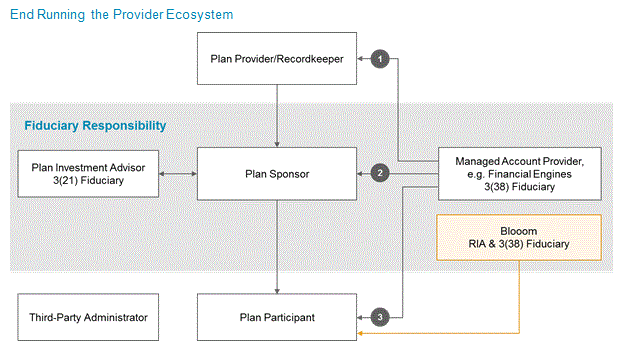The Defined Contribution Conundrum
Automated Approaches to Unlocking the Potential of the 401(k) Retail Investments Market
Abstract
Over the years, the 401(k) has displaced the corporate pension as the cornerstone for US retirement savings and today houses more assets than all other forms of qualified plans combined. At the same time, the 401(k) business has remained a backwater within the retail investments universe, lagging the broader retail brokerage industry in terms of cost, transparency, and overall user experience.

In the report The Defined Contribution Conundrum: Automated Approaches to Unlocking the Potential of the 401(k) Retail Investments Market, Celent describes how a trifecta of regulatory, economic, and demographic forces is reshaping the 401(k) business and opening the door to new market entrants.
Low cost, direct-to-consumer services such as Blooom represent an attractive alternative to established advice providers, with their opaque revenue models and embedded conflicts of interest. These providers will be increasingly vulnerable as disclosure and other regulatory requirements make visible the true costs of their services to participants.

Looking forward, it is the freedom from the operational requirements built into the 401(k) business (such as connectivity to plan providers and sponsors) that will enable creative responses to the evolving benefits landscape.
“A more open marketplace will allow participants to mix and match provider services and spur the creation of third party platforms that bill participants directly,” says William Trout, a senior analyst with Celent’s Wealth Management practice and author of the report. “Plan providers, sponsors, and advisors need to prepare for a regulatory Big Bang that could undercut long-held market assumptions.”

